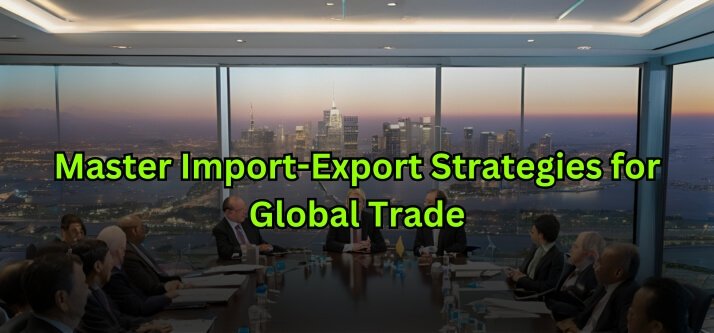
Understanding the complexities of global trade is crucial for businesses looking to expand internationally. This blog delves into the best practices for navigating import-export strategies. Learn how to streamline your global operations while minimizing risk. Equip yourself with insights to scale your business on the global stage :

1. Global Trade Basics
Learn the core principles of international trade, including trade agreements and tariffs. Understand how these elements impact your business operations globally. This foundational knowledge will guide your entry into foreign markets.
2. Navigating Import-Export Regulations
Stay compliant with varying international regulations by understanding customs laws and trade restrictions. Knowledge of country-specific rules ensures smoother transactions. Avoid costly mistakes by mastering the legal landscape of global trade.
3. Building Supplier Relationships
Identify and collaborate with reliable suppliers to ensure consistent product quality and timely deliveries. Strong relationships with suppliers foster trust and minimize disruptions. Negotiate favorable terms to create a mutually beneficial partnership.
4. Managing International Logistics
Efficiently handle global shipping, customs clearance, and warehousing to ensure your goods reach their destination on time. Effective logistics management reduces costs and prevents delays. Stay competitive by optimizing your supply chain operations.
5. Risk Management in Trade
Assess and mitigate risks such as currency fluctuations, political instability, and natural disasters. Develop contingency plans to protect your business from unforeseen disruptions. A solid risk management strategy is vital for global trade success.
6. Export Documentation Essentials
Understand the critical export documents, including invoices, bills of lading, and certificates of origin. Proper documentation helps prevent shipping delays and customs issues. Accurate paperwork ensures smooth international transactions.
7. Expanding Your Global Reach
Explore strategies to enter new international markets, from market research to tailored marketing approaches. Build a strong global presence through competitive analysis and cultural adaptation. Expand strategically by targeting high-potential regions.
In conclusion
Incorporating import-export strategies into your business model is critical for success in today’s interconnected world. These practices are vital for reducing costs, improving efficiency, and increasing market access. A global mindset fosters innovation and adapts to dynamic international markets. Understanding the nuances of trade regulations and logistics will give you a competitive edge. With these insights, you can confidently navigate global trade complexities and grow your business internationally.
Phone Number: +91 9099492499 , Email Address: arthhglobal1704@gmail.com

